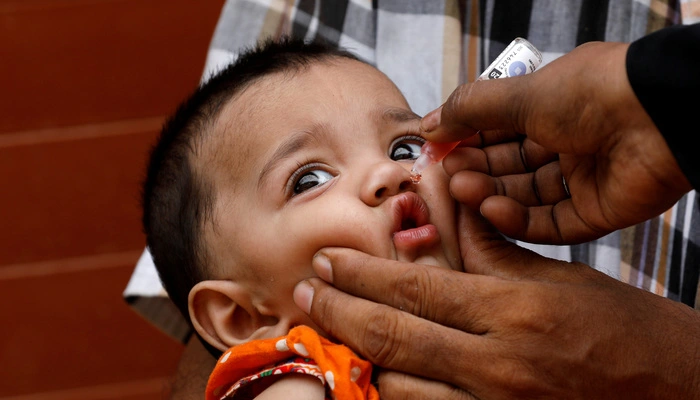ISLAMABAD: Pakistan’s fight against polio has hit a setback, with four new cases confirmed in Balochistan and Khyber Pakhtunkhwa (KP), bringing the total number of polio infections in 2024 to 37. Officials from the Polio Eradication Initiative (PEI) revealed the disturbing figures on Friday.
The latest victims are all young children. Among them is a 30-month-old girl from Lakki Marwat, an 18-month-old girl from Pishin, a 9-month-old boy from Chaman, and a 5-year-old boy from Noshki. These cases highlight the ongoing risk faced by children in regions where vaccine hesitancy is widespread.
Pakistan remains one of the last countries where wild poliovirus still circulates, along with Afghanistan. Despite global efforts to eliminate the disease, misinformation and conspiracy theories continue to fuel resistance to vaccines. This resistance is particularly strong in regions like Balochistan and KP.
PEI officials have expressed deep concern over the rising number of parents refusing to vaccinate their children. “Parents are rejecting both polio drops and routine immunizations due to false information spread by illiterate individuals and unverified social media posts,” one official said. These refusals are directly linked to the emergence of new polio cases.
For years, conspiracy theories have hindered Pakistan’s polio eradication efforts. Misinformation falsely claims that polio vaccines cause infertility or are part of international plots against Muslim children. These myths, widely spread through local communities and social media, have led many parents to refuse vaccines.
A PEI official stressed the connection between vaccine rejection and the rise in polio cases. “In high-risk areas, the rejection of vaccines is causing new cases to emerge,” the official noted. This trend is alarming, as unvaccinated children face the threat of lifelong paralysis or even death from the virus.
Health authorities have been working to increase vaccination rates in vulnerable populations, but the spread of false information continues to hinder progress. The new polio cases in Balochistan and KP underscore the urgent need to address vaccine hesitancy.
Pakistan’s struggle with vaccine refusal is not unique to polio. During the Covid-19 pandemic, similar resistance to vaccines emerged due to widespread myths and conspiracy theories. Experts warn that misinformation, especially in areas with low literacy rates, poses a significant barrier to public health efforts.
To counter this, health officials are planning awareness campaigns to dispel myths and highlight the life-saving importance of vaccines. PEI officials urge parents to consult medical professionals for accurate information instead of relying on unverified sources. “Vaccines are safe and necessary to protect children from deadly diseases like polio,” a PEI spokesperson warned.
While efforts to vaccinate children continue, health authorities face challenges until vaccine refusals are fully addressed. Pakistan has been part of the global fight to eradicate polio for decades. Although significant progress has been made, vaccine resistance threatens to undo years of hard work.
With 37 cases reported this year, Pakistan is at a critical juncture in its battle against polio. The continued spread of conspiracy theories and vaccine refusals puts countless children at risk. Health officials are racing against time to curb the disease and prevent further outbreaks.
Follow us on Google News, Instagram, YouTube, Facebook,Whats App, and TikTok for latest updates
